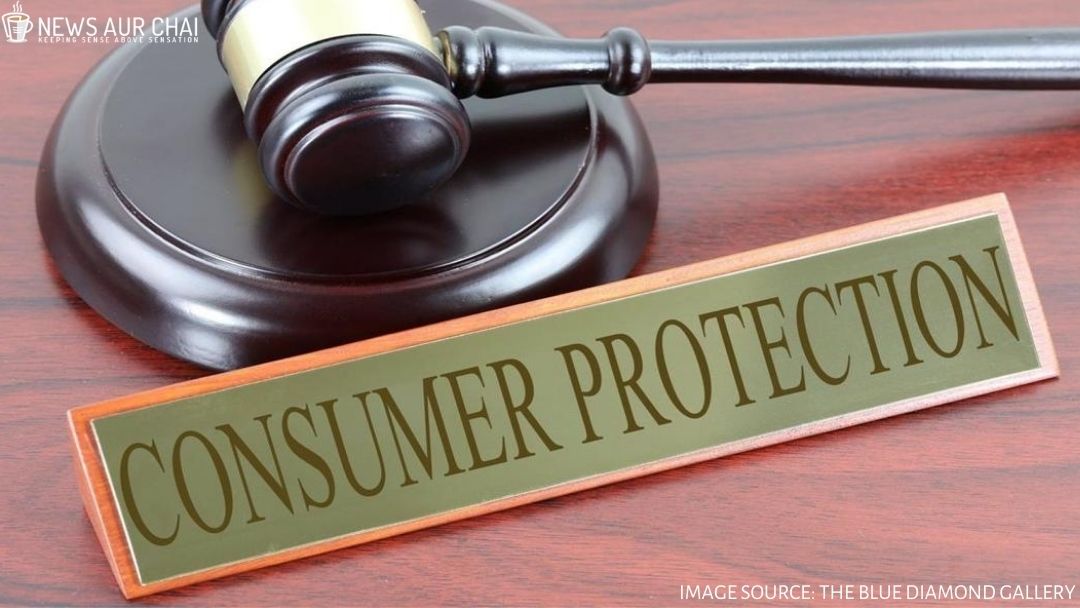
The Consumer Protection Act, 2019 (hereinafter referred to as ‘the Act’) has come into force with effect from July 20, 2020. It replaced the 34 years old Consumer Protection Act 1986, originally published on December 24, 1986. The Act is an attempt to update the 1986 Act to cope up with the introduction of online marketplaces and e-commerce.
The Lok Sabha had passed the Consumer Protection Bill, on July 30, 2019, which was passed by the Rajya Sabha on August 6 the same year. This Bill was introduced in the Parliament by Mr Ram Vilas Paswan (Minister of Consumer Affairs, Food and Public Distribution).
To give effect to the provisions of the new #Consumer_Protection_Act, essential Rules notified with effect from 20th July, 2020. Some most important are Central Consumer Protection Council Rules and Appointment of President and Member in State/District Commission Rules.1/2 pic.twitter.com/5YJw9AqKF8
— Ram Vilas Paswan (@irvpaswan) July 20, 2020
Some other essential Rules notified are Consumer Disputes Redressal Commission Rules; Mediation Rules; Model Rules and General Rules. e-Commerce Rules are under notification. 2/2 @jagograhakjago pic.twitter.com/tnXe83zNXb
— Ram Vilas Paswan (@irvpaswan) July 20, 2020
आज विडियो कांफ्रेंसिंग के जरिए प्रेस को संबोधित किया और आज से प्रभावी हुए नये #उपभोक्ता_संरक्षण_कानून_2019 के प्रमुख प्रावधानों, इसके नये नियम-कानून,सजा के प्रावधान और उपभोक्ताओं के अधिकार संरक्षण के बारे में चर्चा की। यह कानून उपभोक्ताओं के हाथ मजबूत करेगा। @narendramodi pic.twitter.com/db1V2gyDgH
— Ram Vilas Paswan (@irvpaswan) July 20, 2020
What is Consumer Protection Act, 2019?
As per The Gazette of India published by the Legislative Department, Ministry of Law and Justice on August 9, 2019, “An Act to provide for protection of the interests of consumers and for the said purpose, to establish authorities for timely and effective administration and settlement of consumers’ disputes and for matters connected therewith or incidental thereto.”
In other words, it is a Law to protect the interests of the Consumers.
Why is there a Separate Act for Consumer Protection?
- To resolve a large number of pending Consumer disputes;
- Provide ways to address consumers’ grievances effectively and efficiently;
- Strengthening the Rights of consumers by establishing the necessary Authorities.
Features of the Consumer Protection Act, 2019
- The Act seeks to widen the scope of the definition of ‘Consumer’ which includes both online and offline transactions;
- The concept of ‘product liability’ has been newly introduced. It is defined as the responsibility of a product manufacturer or product seller of any product or service to compensate for any harm caused to a consumer due to defective product manufactured, sold or deficiency in services relating to it;
- Introduction of ‘e-commerce’ and ‘electronic service provider’;
- Mandatory for e-commerce platforms to disclose necessary details which will assist the consumers in taking up a useful decision;
- Introduction of the concept of ‘Mediation.’
This Alternate Dispute Resolution mechanism has been carried out to sort out consumer disputes, either in parts or as a whole, much quicker;
- Establishment of a Central Consumer Protection Authority (CCPA) containing 35 members;
- Provision of the Consumer Disputes Redressal Commissions (CDRCs) at the national, state and district levels;
- The ‘pecuniary jurisdiction’ of the CDRCs have been widened than the 1986 Act.
| Level of Commission | Accepts complaints where the value of the Goods or Services paid as consideration… |
| District | Does not exceed INR 1 crore |
| State | Exceeds INR 1 crore, but does not exceed INR 10 crores |
| National | Exceeds INR 10 crores |
- As per the CDRC rules, there are no fees for filing cases up to Rs 5 lakh;
- Six Rights of Consumers
a) To have information about the quantity, quality, purity, potency, price and standard of goods or services
b) To be protected from hazardous goods and services
c) To be protected from unfair or restrictive trade practices
d) To have a variety of goods or services at competitive prices
e) To be heard and to be assured that consumers’ interests will receive due consideration at appropriate fora. - Consumer awareness;
- Manufacturers, service providers, celebrity endorsers will be held accountable over misleading advertisements;
- Updation of the compensation and jail terms for defaulters;
- The deprived consumer can attend the hearing of the cases through video conferencing;
- Encouragement to e-file complaints by the consumers.
Penalties:
- Punishment for misleading advertisements: Fine/penalty from Rs 10 lakhs and an imprisonment up to 2 years TO Rs 50 lakhs and imprisonment up to 5 years.
- Failure to follow instructions of the CCPA for recall of goods and withdrawal of services: Punishment involving imprisonment up to 6 months OR fine up to Rs. 20 lakhs.
The Consumer Protection Act, 2019 is considered better than the former Act. The roles of all parties involved in the transactions have been clearly stated, holding each accountable for their actions. Hence, the Act ensures that the Consumers are not being exploited in the wrong manner.





